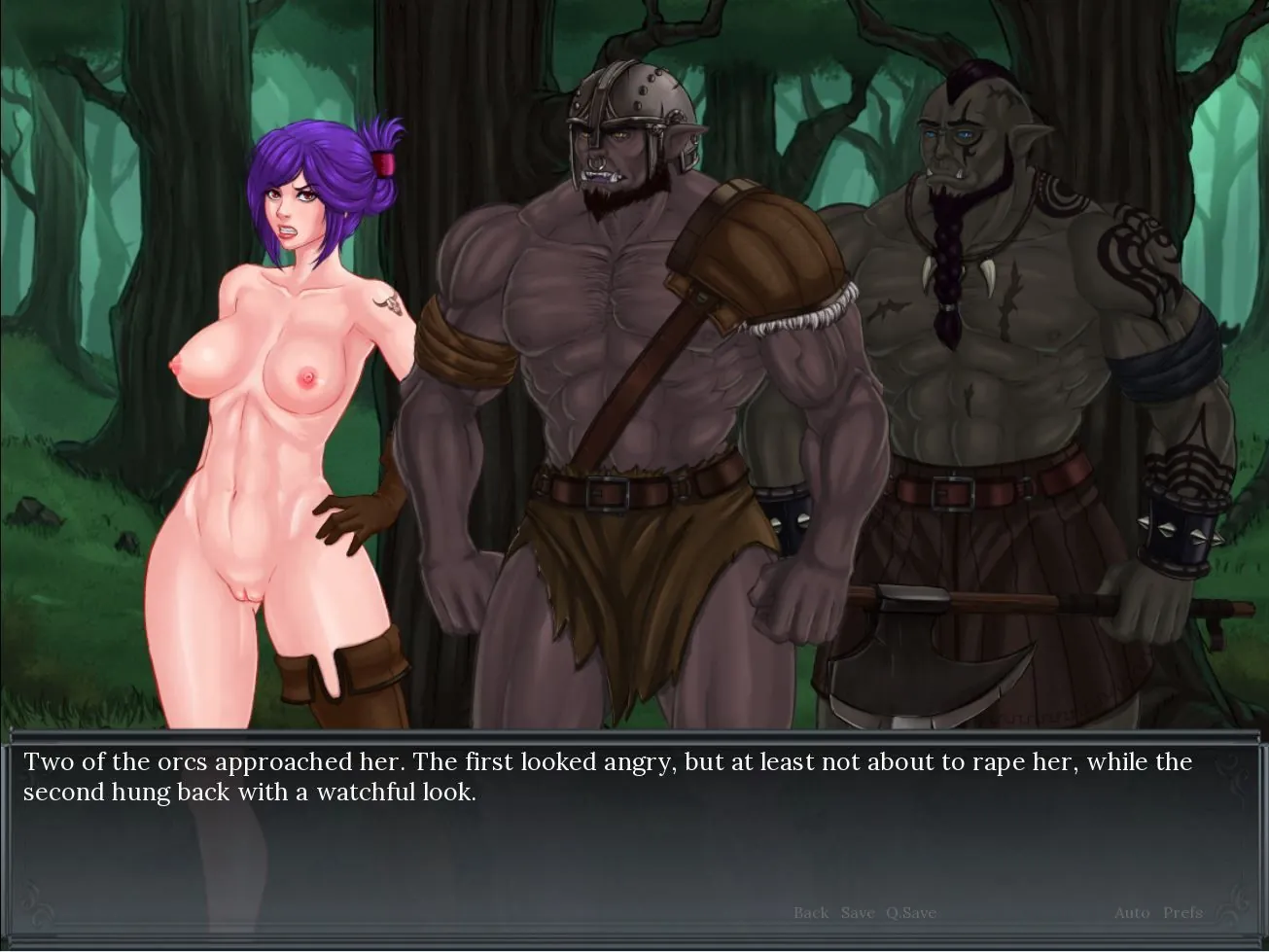
Sanguis et Imperium
Play Sanguis et Imperium
Sanguis et Imperium review
Unraveling the Gothic Romance and Player-Driven Choices in This Adult Visual Novel
Sanguis et Imperium stands out in the visual novel genre with its rich Renaissance-era storytelling and mature character-driven narratives. This immersive experience follows Alaire Lacroix’s centuries-spanning journey as a vampire, blending historical fiction with player-controlled relationship dynamics. Through its branching paths and atmospheric worldbuilding, the game challenges players to navigate complex moral choices while exploring themes of power and immortality.
Gameplay Mechanics and Narrative Structure
Interactive Storytelling in Historical Settings
Picture this: you’re sipping wine in a dimly lit Florentine palazzo 🍷, debating whether to forge an alliance with a scheming noble or expose their plot to the city council. Every choice feels like walking a tightrope over a pit of vipers—and that’s exactly how Sanguis et Imperium hooks you. Set against a lush Renaissance setting brimming with political intrigue and forbidden desires, this isn’t your grandma’s visual novel. Here, branching narratives aren’t just a gimmick—they’re the DNA of the story.
Take the infamous “Masquerade of Shadows” scene. 🎭 You’re invited to a lavish party where whispers of treason mingle with the clink of goblets. Do you:
1. Flirt with the mysterious stranger who knows your darkest secret?
2. Sneak into the host’s study to uncover evidence of a coup?
3. Publicly accuse a rival of heresy to divert attention from your own sins?
Each decision ripples through the plot like a stone tossed into the Arno River. I once replayed this scene three times and got three wildly different outcomes—including a steamy rooftop encounter that derailed my entire political campaign. 😏 The game’s Renaissance setting isn’t just backdrop; it’s a living, breathing character. From the architecture to the period-accurate dialogue, every detail immerses you in a world where art and brutality collide.
Character Relationship Systems
Let’s talk about the heart of the game: relationship dynamics. Imagine Game of Thrones meets Pride and Prejudice, but with more dagger-sharp wit and fewer happy endings. 🗡️💔 Every interaction—whether with a lover, ally, or enemy—shapes your path. The game tracks relationships through a hidden “Affinity” system, where even a misplaced compliment can turn a friend into a foe.
For example, Lady Caterina (your sharp-tongued spy mistress) might adore your ruthlessness but despise sentimental gestures. Bring her a bouquet? ❌ She’ll mock you mercilessly. Share intel on a rival’s weakness? ✅ She’ll pledge her loyalty—and maybe more. Meanwhile, Cardinal Valenti, your morally rigid advisor, judges every moral choice you make. Save a village from plague? He’ll call it “divine duty.” Let it burn to protect your reputation? Prepare for a lecture—and a plummeting affinity score.
Here’s a breakdown of how different paths affect playtime:
| Path Focus | Key Relationships | Average Playtime |
|---|---|---|
| Political Ambition | Allies/Rivals | 12-14 hours |
| Romantic Entanglements | Lovers/Spouses | 10-12 hours |
| Religious Reform | Clergy/Dissenters | 14-16 hours |
Romance isn’t just a side quest here—it’s woven into the main narrative threads like gold through tapestry. Pursue a forbidden affair with a married diplomat, and you’ll unlock blackmail opportunities. Stay chaste, and the clergy might champion your cause. The game rewards complexity: my “saintly rebel” playthrough had me torn between a revolutionary poet lover and a pious nun confidante, both pushing me toward radically different multiple endings.
Consequence-Driven Decision Making
Ever made a choice in a game and immediately screamed, “Wait, let me undo that!”? 😱 Sanguis et Imperium thrives on that panic. Its moral choices aren’t binary “good vs. evil” sliders—they’re messy, human dilemmas. Early on, you’ll face a trial where a friend is accused of murder. You can:
– Lie to save them (and risk your honor),
– Stay silent (letting fate decide),
– Or betray them to gain the judge’s favor.
I chose silence… only to watch my friend hang. The game didn’t flash a “Bad Ending” warning—it just let me live with the guilt. 💔 Later, that silence came back to haunt me when their sibling blackmailed me over my inaction.
This is a world where consequences don’t just wait for the finale—they stalk you like shadows. Even tiny decisions, like gifting a book or skipping a meeting, can snowball into game-altering events. One player I know ignored a beggar’s plea in Act 1, only to discover in Act 3 that the beggar was a disgraced noble who’d joined their enemies. Revenge, served ice-cold. ❄️
The multiple endings aren’t just about who sits on the throne or who you marry. They reflect the sum of your relationships, secrets, and compromises. Will you become a revered leader, a reviled tyrant, or a nameless corpse in a ditch? The game’s 12+ endings range from bittersweet to brutally ironic, with my personal favorite being the “accidental pope” route (yes, really). 🙏
Why This Matters for You
So, why dive into Sanguis et Imperium? Because it treats you like an adult. � No hand-holding, no plot armor—just raw, unfiltered storytelling where your branching narratives truly matter. Whether you’re here for the Gothic romance, the Machiavellian schemes, or the thrill of shaping history, this game delivers. Pro tip: Save often. Trust me, you’ll need it. 😉
Now, go forth—and may your choices be as sharp as a Medici dagger. ⚔️
Sanguis et Imperium offers a sophisticated blend of historical fiction and interactive storytelling that elevates its mature themes beyond superficial tropes. For players seeking narrative depth with meaningful choices, this visual novel presents a compelling exploration of immortality’s psychological toll. Discover how your decisions shape centuries of vampire lore through the game’s free demo on itch.io.












